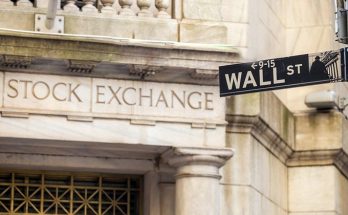For many years, exchange traded funds (ETFs) have been a key area of interest for retail and institutional investors. ETFs are funds that contain a basket of securities or stocks that often track a sector or index, such as the S&P 500.
Following years of sustained growth, the long-term viability of ETFs was tested during the COVID-19 pandemic, and the results have been overwhelmingly positive.
Alex Craddock, managing director and Global CMO of iShares, believes that marketing ETFs in turbulent climates, such as the pandemic, is primarily about offering resources that speak to investor needs and concerns. In a recent webinar with the Financial Communications Society, Craddock shared several ETF themes that have emerged due to the COVID-19 pandemic.
Key Takeaways
Fixed-income ETFs have been one of the best-performing asset classes since the coronavirus pandemic began in early 2020.Leveraging client insights and data can impact the ability to adapt to shifting consumer needs and pivot messaging during uncertain times. Due to iShares’ agility during the pandemic, the brand has been able to successfully engage with both retail and institutional clients.As part of its ETF marketing strategy, iShares has provided clients with relevant content and resources, helping them navigate the crisis and market shifts.
The Importance of Leveraging Client Insights
Financial firms have become increasingly data-driven in the past few years, and the ability to leverage client insights has helped companies like iShares navigate the current crisis.
“One of the things that stood us in good stead was the shift that we made in the last 18 months to being a lot more focused on client insights and data and using that to get a deep understanding of what our clients are feeling, what they’re looking for, and what their needs are,” says Craddock.
As a result, iShares has been able to quickly pivot the company's campaigns and messaging, offering investors the reassurance and resources they’ve been seeking.
“It was a wild ride, but the agility we showed and the ability to get great content out there and help people to make some sense of the chaos was reassuring, and that’s been very much the theme,” explains Craddock. Moving forward, iShares plans to stay close to its clients by consistently putting their insights to use in their marketing campaigns.
The Outlook for Fixed-Income ETFs
Fixed-income ETFs have seen remarkable inflows during the pandemic despite volatility or price fluctuations. Fixed-income securities are typically bonds or debt instruments that pay a fixed rate of interest to investors in exchange for buying them. The principal or original amount invested is returned to the investor at the bond's maturity date.
Inflows to Bond ETFs
ETF.com reported that bond ETFs pulled in more than $74 billion of cash by June 2020. Nearly $100 billion in net inflows went into the top bond ETFs from March 01, 2020, to September 16, 2021, with more than $28 billion into Vanguard's Total Bond Market ETF (BND).
However, a portion of the inflows to bond ETFs has been attributed to the Federal Reserve’s quantitative easing, involving bond purchases by the U.S. central bank as part of its efforts to stabilize the financial markets and the U.S. economy.
Safe-Haven Investments
Craddock believes these inflows are also a result of strong performance, and it's a trend that will likely continue:
Up until now, there has been commentary in the industry around fixed-income ETFs and whether they could perform well in a volatile market, and I have to say that if ever there has been a test of fixed-income ETFs, it’s been with the markets that we’ve experienced.
That test has resulted in the emergence of fixed-income ETFs as a safe haven for many investors and a powerful asset class for iShares:
Our fixed income ETFs performed exactly as we expected and hoped—the liquidity was there, the price transparency was there, and what we’ve seen as a result has been a lot of commentary now from within the industry about just how well fixed-income ETFs have performed, and that has made it an even bigger opportunity than it was at the start of the year.
The Bottom Line
Exchange traded funds (ETFs)—whether stock or fixed-income—have proved their value during the coronavirus pandemic and should continue to garner investor interest in the future. ETFs offer investors a wide variety of investment options, allowing for the diversification of an investment portfolio.
Fixed-income ETFs can help reduce, although not eliminate, the risk of financial loss in the event of a market correction or downturn. As a result, marketing ETFs helps provide investors with the resources needed to make the right investment decisions, which can go a long way toward establishing long-lasting client relationships.
This article is from https://www.investopedia.com/, if there is any copyright issue, please contact the webmaster to delete it.









